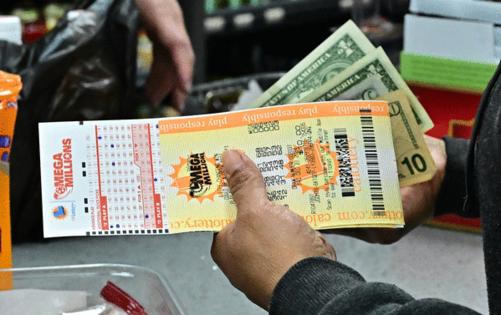Commentary: Big winner in the new Mega Millions lottery is not the players
Published in Op Eds
On Tuesday, the new Mega Millions lottery was launched. The lottery is promoting several enhancements, including a “built-in multiplier,” “bigger jackpots and secondary prizes,” and “better odds to win jackpot.” But are such enhancements in the best interest of those who buy lottery tickets or the lottery itself?
With these changes in rules and structure, it’s an ideal time to do a deep dive on the lottery’s claims and provide context for what the new Mega Millions is offering. Note that I have no affiliation with this or any other lottery, and I am not a purchaser of lottery tickets. I am a data scientist who seeks to provide insights on ways that people choose to spend their money and their return on investment.
First, the ticket price is higher. The cost of playing has risen to $5 per ticket, up from $2 (or $3 if the “megaplier” multiplier was purchased). Whether people will purchase the same number of tickets at the higher price remains to be seen.
The built-in multiplier offers five tiers: 2x, 3x, 4x, 5x and 10x. The actual probabilities of falling into each of these tiers are given as odds, which can be difficult to understand. An analysis reveals that over three-quarters of tickets will fall into the 2x or 3x tiers.
The 2x tier is the new baseline, so the payout in the 3x tier is 50% higher than the 2x tier payouts, the payouts in the 4x tier are double the 2x tier payouts, the payouts in the 5x tier are 2.5 higher than the 2x tier payouts, and the payouts in the 10x tier are five times the 2x tier payouts. Such “x” labeling is misleading, since they are anchored to the old version, which in just a few months will be forgotten, while the new tier labels will remain.
The multiplier tiers also apply only to nonjackpot prizes, as was the case with the old version.
The claim of “better odds to win jackpot” is correct. The old version has one winning number out of 302,575,350 possible numbers. The new version has one winning number out of 290,472,336 possible numbers. This difference, 12,103,014 numbers, is due to the elimination of one Mega Ball (down from 25 to 24). Clearly, both odds are exceedingly low. The new odds of winning the jackpot are also very close to the odds of winning the Powerball jackpot.
The “bigger jackpots and secondary prizes” are indeed correct on the surface, when compared with the old version. However, the two lotteries are sufficiently different that they cannot be compared in a natural way. This means that the best way to compare them is to compute what the expected payout is for the nonjackpot prizes.
For the old version, every $2 ticket had an expected return of almost 25 cents for the nonjackpot prizes, or a loss of around $1.75. If a person paid the extra $1 for the multiplier, their $3 ticket had an expected return of around 74 cents, or a loss of around $2.26.
For the new version, every $5 ticket has an expected return of just under $1.12 for the nonjackpot prizes, or a loss of around $3.88.
To compare apples to apples, a person who has $30 to spend would have been able to purchase 15 old-version tickets, 10 old-version tickets with the megaplier or six new version tickets. The purchase with the highest expected return would be the old-version ticket with a megaplier, at $7.41, followed by the new version at $6.71 and the old version at $3.70.
Some will cry foul, given that this analysis leaves out the jackpot. Yet with millions of tickets sold each drawing, the jackpot is won just a handful of times each year. Including the expected winnings contribution of the jackpot in these computations would be misleading, given the rarity of the jackpot and its high payout.
In fact, for the expected winnings with the new Mega Millions to equal $5 would require the jackpot to be over $1.12 billion every drawing, not including the cost of operating the lottery, assuming that it is not split between two or more people. This is a lofty bar to jump for making the lottery fair for everyone, which it need not be.
The big winners with the new Mega Millions are the states that collect tax revenue from winnings and the people who sell tickets and collect fees for doing so. The big losers are the people who buy tickets.
Will this stop people from buying tickets? Of course not. Nor should it.
For most, they are buying a dream, and for $5, it is well worth the price. And for a small handful of people, that dream becomes a reality. Yet for most, the new Mega Millions is not much different from the old version, just with a higher price tag and a lower expected nonjackpot payout per dollar spent.
____
Sheldon H. Jacobson, Ph.D., is a professor of computer science in the Grainger College of Engineering at the University of Illinois at Urbana-Champaign. He is the founder of Bracketodds, a learning lab showcasing the mathematics of March Madness.
___
©2025 Chicago Tribune. Visit at chicagotribune.com. Distributed by Tribune Content Agency, LLC.




























































Comments